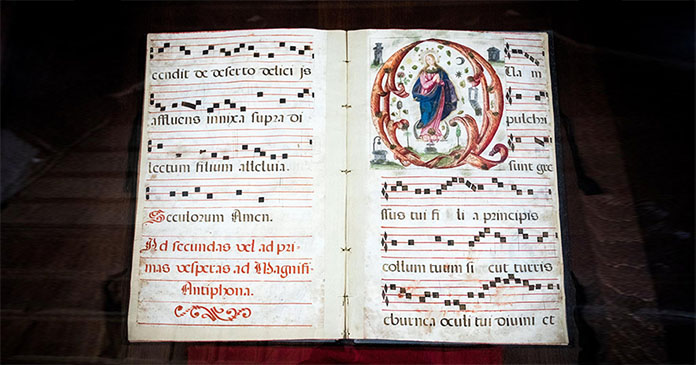
Beauty will save the world. It saved me.
I was a cradle Catholic. I attended Catholic school and walked away from the church at age 15. However good or bad my reasons, there is no question that the church no longer inspired me. She no longer commanded awe, even respect.
I launched onto the waters of secularism, sailing its temped shoal for years. Then beauty found me and I succumbed.
The culprit was my wife. She is a practicing Catholic and church music director. Shortly after we were married, she formed an independent choir to spread the beauty of the Catholic musical tradition in our area. What a nice hobby for her.
Then came the choir’s first concert. I attended by obligation.
That evening I discovered there is much more to the Church than what Bishop Barron calls “banners and balloons Catholicism,” or the feeble church that I had come to disdain.
In that music I heard the voices of the angels, the sounds of heaven. The shell around my heart crumbled and fell away. I wept. In that evening I heard the call of a church much greater than myself. not the cringe-worthy experience I had outgrown at 15. God called me back through that music—music created by my wife and her choir. Music that was, and still is, a treasure of inestimable value.
In his Letter to Artists (1999), Pope Saint John Paul II quoted Dostoyevsky: “Beauty will save the world,” referring to this as “profound insight.” For 19 centuries the Church understood that beauty is crucial in the saving work of God. The Catholic church created and commissioned much of the world’s greatest art, music and architecture. Beginning with chant and continuing into the modern era, musical masterpieces were composed for the Mass.
During those centuries the church understood that the sacred arts reflect the beauty of heaven and that beauty is a reflection of God.
Then something strange happened.
Over the last century beauty became suspect. It was elitist, obsolete, not relatable. Worst of all, beauty was not pastoral. And so, beauty was removed, remodeled, painted over, discarded, demolished. It was replaced with the utilitarian, the banal, the uninspired, and, often, the ugly, the grotesque and the hideous. This was pastoral? What does this say about the position of certain shepherds toward their flocks?
Beauty was banished from church music, as well. Vatican II stated that “the musical tradition of the universal church is a treasure of inestimable value, greater even that that of any other art.” In most Catholic parishes today, music is more banal than beautiful. Excellent sacred music often faces the dishonest accusation of being a mere performance.
How is it inappropriate to offer our best to God? Why is it unseemly for talented musicians to use their abilities for the benefit of all? This turns the Parable of the Talents on its head. Those in the pews suffer as a result.
Beauty is one of the three transcendentals, along with goodness and truth. Each flow from above and serves to reveal God to his people. We are called to offer these gifts back to God and to others. Some are drawn to God through truth, some through goodness. Some, like me, are drawn through beauty. The church at its best promotes all three. When she is sick, all three take a back seat to other, more worldly concerns.
Beauty will save the world. Does your parish celebrate beautiful liturgies? Is the treasure of sacred music valued and applied? Do liturgies and music lift people closer to heaven, creating a longing for the unending beauty of union with the divine? Does worship reveal a church that is greater than Me? It’s not hard. It does take training and a large dose of will.
Beauty will save the world. I believe that because it saved me.
